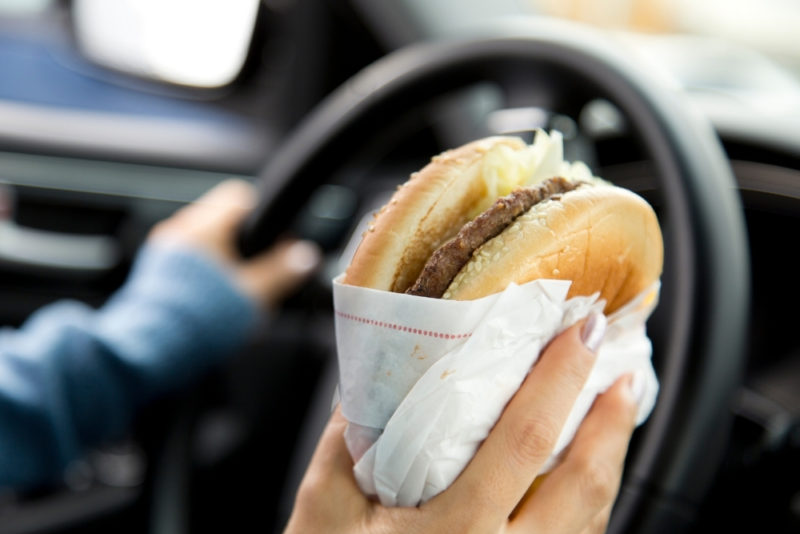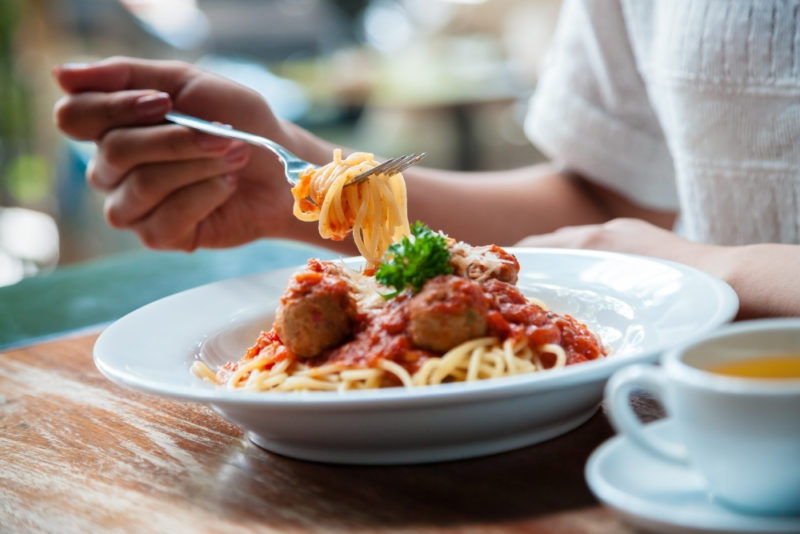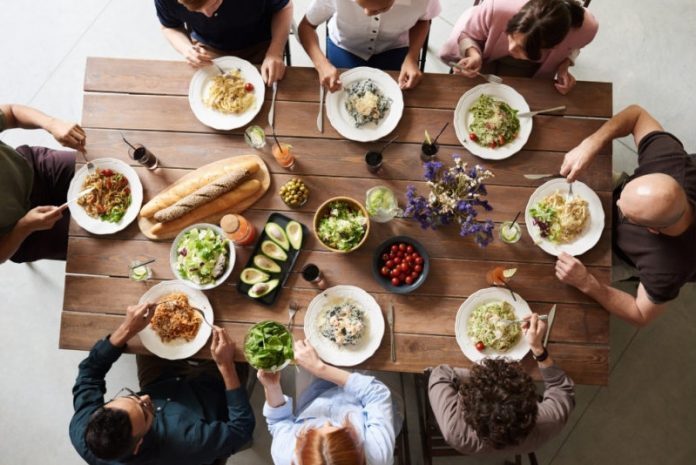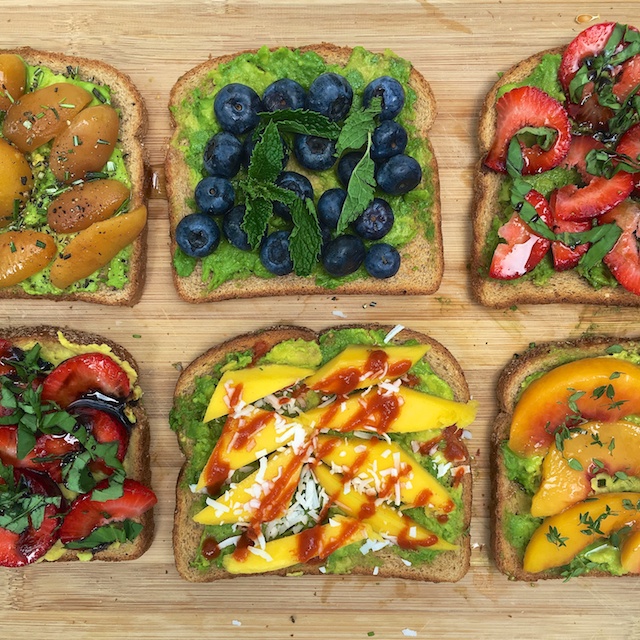What does it mean to nourish yourself?
Unless you’ve been hiding under a rock, you know that nutritious foods are important for health. (Whether you translate that awareness into action might be another story.) But eating for health and well-being is about more than just the food you put in your shopping cart, on your plate and into your mouth. You could eat the most meticulously planned, nutrient-rich diet in the world and not experience true nourishment from it if you’re ignoring two other aspects of eating and nourishment.
What you eat
No one can deny that your food choices can influence your health, for better or for worse. Eating a nutritious diet is consistently listed as one of the four behaviors that helps us live longer lives free of the major chronic diseases (diabetes, heart disease and cancer). Regular physical activity, moderate alcohol intake and never smoking are the other three behaviors.
In the simplest terms, an eating pattern that includes a balanced, varied diet gives your cells (very part of our bodies, from our blood to our bones to our muscles to our organs is made of cells) the nutrients they need to function properly. This helps prevent chronic disease, but also helps us feel well. Stronger, sharper, more energetic.
What do I mean by “balance”? When you look at how balanced your overall eating pattern is, it’s useful to consider whether you are getting a balance of the three macronutrients (carbohydrates, protein and fat), which you can also assess by looking at whether you are drawing from all of the major food groups — fruits, vegetables, whole grains, protein foods (meat, poultry, fish, eggs, beans and lentils, soy foods, nuts and seeds), dairy foods (or substitutes).
- Balance is important because even though each of those groups contains foods that are very nutritious, they don’t all contain the same nutrients.
- A diet that leans almost exclusively on one or two food groups would not be devoid of nutrients, but it would be lacking the full array of nutrients we needs.
What do I mean by “varied”? When you assess the variety in your diet, you’re looking within the different food groups. How many different types of fruits, vegetables, whole grains and protein foods do you include in your diet over time? The “over time” part is important, because it can be easy to overload your grocery cart in the name of getting a lot of variety in the next week’s meals, only to end up buying more produce than you can eat.
- If you lean towards produce that’s in season (like berries in the summer, apples in the fall/winter), that’s one way of including variety. Making sure you don’t get in a rut with the same exact foods week after week is another.
- Broccoli and spinach have slightly different micronutrients (vitamins, minerals, antioxidants), so do berries and apples, chicken and fish, tofu and lentils. Variety helps you get the full array.

How you eat
When it’s time to eat, do you sit down and take a break from the rest of the day’s activities, or do you eat on the fly — at your desk, in your car — perhaps while distracted by television, email, social media? Either way, this translates into mindless eating, which makes it hard to notice when you’ve crossed over from hunger to fullness. Sometimes, you might not even notice if you’re truly hungry when you start eating, because you’re not really paying attention and tuning in to your body’s cues and signals.
Eating in in a rush — or while your mind is elsewhere — also gets in the way of being truly satisfied by your food, because even if you just ingested a balanced meal of sufficient quantity to leave you physically full, the fact that you missed out on the sensory pleasures of eating can leave you wanting something more. If you’ve ever looked down at an empty plate and wondered where your food went, you know what I’m talking about.

How you feel about what and how you eat
What feelings come up after you eat, or when you think about how you eat? Joy, or guilt? Confidence, or confusion? Satisfaction, or shame? Do you make your choices from a place of self-care — or self-control?
On the one hand, if your eating is chaotic and all over the map — maybe because you go too long without eating and end up so hungry that anything remotely edible is fair game — that’s a recipe for not feeling good physically or mentally. (Why? Because it sets the stage for accidental overeating with a side of shame, and probably sub-par nutrition to boot.)
On the other hand, striving for perfection in your food choices is not only NOT necessary, from a biological point of view, but it can also be harmful from a psychological point of view. (That’s also true about perfectionism, generally.) Putting that much pressure on yourself is stressful, and it can also lead to anxiety and social isolation. (Why social isolation? Because if you’re afraid to eat with others because it may mean eating food that doesn’t align with your food rules, then you’re going to miss out on many opportunities for social connection.)
On the third hand (wait…how do I have three hands?), when your food choices are based on self-care, you’re confident that how you eat supports your health while leaving plenty of room for pleasure, and you make a point to honor your body’s natural hunger cues, respect signs that you’re getting full, and really think about what satisfies you, that’s a healthy food relationship. (Why? Because when we are tuned into to internal cues rather than external rules, we will choose foods that fuel our bodies well, while making room for “fun foods” without any guilt. That’s good for mind and body.)
Bringing it all together
Getting balance and variety contributes to good nutrition, and it also contributes to satisfaction, because it can keep things interesting. But along with that, it’s important to remember that another key to true nourishment is having a sense of peace and freedom about your eating. Feeding yourself is about more than fueling yourself — it’s about feeding your soul, through pleasurable, satisfying food as well as well as other self-care behaviors that “feed” you in non-food ways.
Carrie Dennett is a Pacific Northwest-based registered dietitian nutritionist, freelance writer, intuitive eating counselor, author, and speaker. Her superpowers include busting nutrition myths and empowering women to feel better in their bodies and make food choices that support pleasure, nutrition and health.










